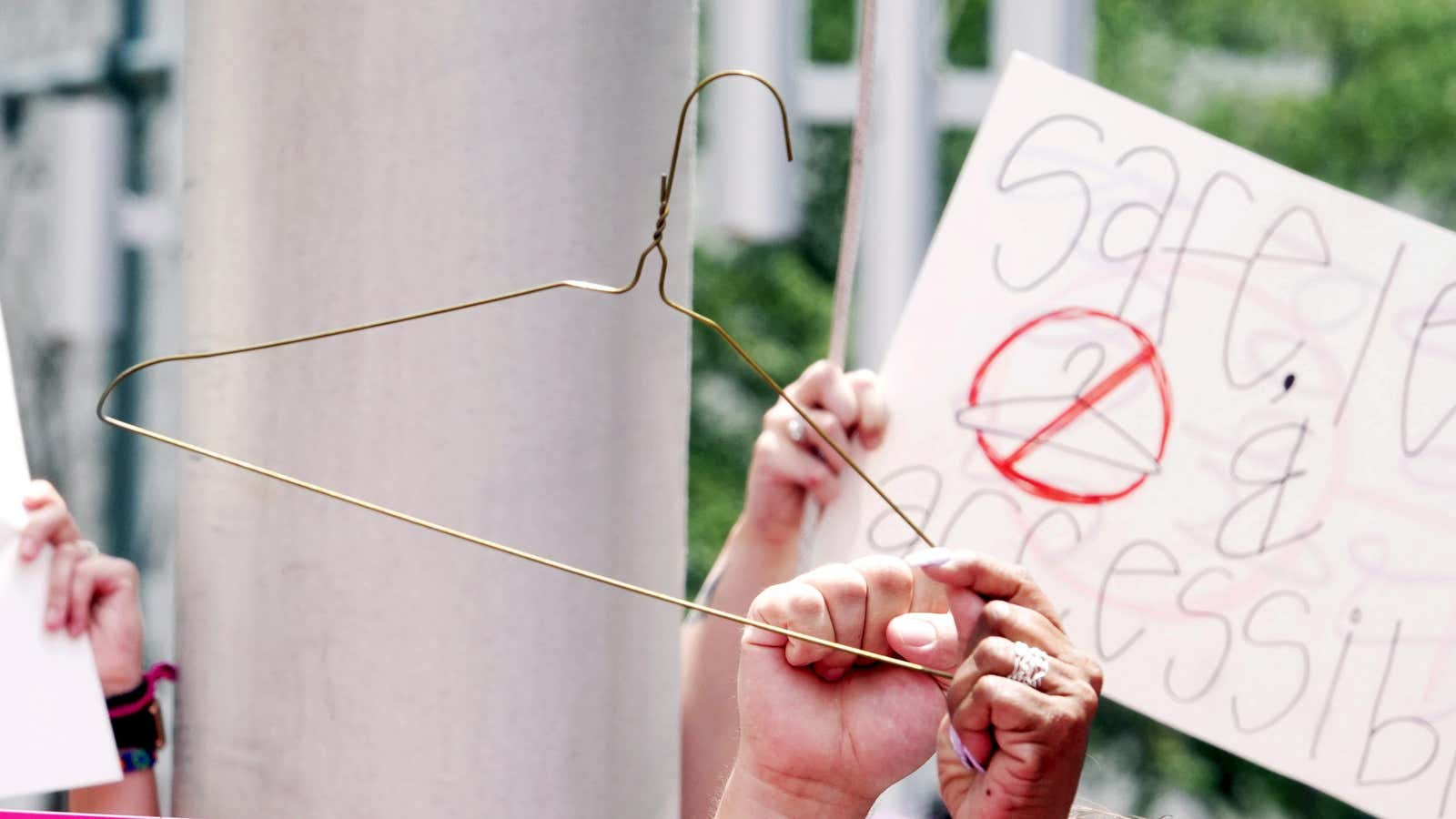Texas is at war against women’s reproductive rights, and turning its citizens into an army.
The state’s new anti-abortion law, which goes into effect today, bans all abortions—including in pregnancies resulting from rape or incest—as soon as a fetal heartbeat is detected. This occurs around six weeks after conception, or before many women would even know they are pregnant. The only exception to the rule is a medical emergency.
This is the most restrictive anti-abortion law in the country, and one of the most extreme in the world. The American Civil Liberties Union (ACLU) had asked the Supreme Court an emergency ruling to block the law, but the court didn’t respond.
An army of anti-abortion vigilantes
Making the law even more extraordinary, the power of enacting the ban isn’t in the state’s hands, but in those of its citizens.
According to the law, private citizens can sue the physician who performed an abortion after the sixth week, as well as anyone who helped facilitate it, from counselors to anyone providing financial support for the procedure to someone who simply drove the woman to the clinic with the knowledge that she was getting an abortion.
The complainant can receive up to $10,000 in damage compensation if the accused is found guilty, on top of any legal fees, even if they don’t have any connection with the woman who received the abortion. Depending on the verdict, the court could enforce the collection of the debt, which could include seizing property if the person found guilty doesn’t have sufficient available funds to pay.
This means that, as of today, every Texan has a financial incentive to track down almost any abortion, since at least two-thirds of all abortions occur after the sixth week.
Since it isn’t the government suing the patient, the law does not fall under the protections established by Roe v Wade, the Supreme Court decision which forbids the states from imposing restrictions on abortion at least until the fetus is viable and can survive out of the uterus.
The goal, as expressly stated by the proponent of the law, is to put anyone providing, or helping abortions after the sixth week under the threat of a deluge of lawsuits, making it financially unsustainable to maintain an abortion practice. Even if the providers won in court, and could demonstrate they didn’t perform the abortion after six weeks, the time and money required to sustain the suits could still be too much to bear.
The Supreme Court might still block the law as unconstitutional, but until it does, it is likely other conservative states will try and emulate the Texas model.
According to the latest data available, as of 2017 there were 35 abortion-providing facilities in Texas, of which 28 were clinics. As the law comes into effect, all of them—including Planned Parenthood—have stopped providing abortion services after the sixth week, and a majority of them might be forced to close.
